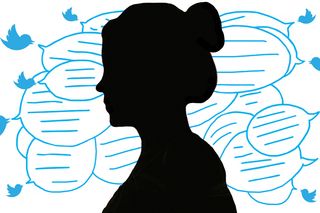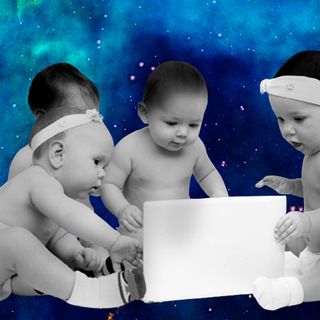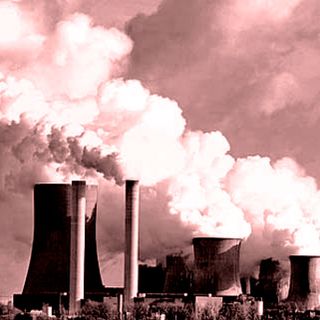
#MeToo Is Making People Confront Their Trauma. And Most Are Unequipped To Do So.
“But that’s the thing about trauma, you’re never done with it.”

When Ruchita Chandrashekar, a mental health clinician specializing in trauma work, tweeted an offer to provide pro bono services to #MeToo survivors two weeks ago, she noticed something troubling — a lot of the people who responded knew they weren’t all right, but had no understanding of what was happening to them.
“What they were describing were classic trauma responses, classic post-traumatic stress,” she says. But unlike a fever, which has known symptoms and an easy treatment, most people don’t understand their mental distress, why they’re experiencing it, let alone what to do about it.
For a lot of survivors of harassment or assault, #MeToo and the stories that have come out, have resulted in flashbacks, panic attacks, depression, and post-traumatic stress. The stories have acted as triggers — psychological stimuli that oversaturate the brain and cause the body to re-experience trauma. The memory of trauma is not just stored in the brain, but in the body as well, so not only might someone remember the details of assault or harassment, but they can literally feel those heightened emotions of anxiety and fear all over again. For survivors of rape, experiencing physical, responses like pain or numbness, is not uncommon, even if the memory itself is blocked out.
Read: How Do You Feel About #MeToo? We Want to Hear From You.
Chandrashekar describes people who wrote to her, surprised they had remembered details about trauma from 10 years ago, even though they hadn’t thought about it for years. A 19-year-old recalled the sexual abuse they experienced as a child, and asked why they were remembering it only now. Were survivors not done with their trauma?
The difficult answer is, no. “Therapy and mental health resources in our country are a privilege, not a right. So, a lot of people have trauma that’s not processed. So they say, ‘Abhi 10 saal ho gaye, why is this happening now?’” Chandrashekar explains. “But that’s the thing about trauma — you’re never done with it. You just learn to manage it over the course of your life.”
Even for people who aren’t survivors of assault, consuming the news of widespread violence is enough to make some experience ‘vicarious trauma.’ People who aren’t survivors of, say, the more gruesome cases of sexual violence, may still experience distress and exhaustion, as well as short-term post-traumatic responses, merely by being exposed to the accounts of survivors’ trauma.
“Everyone is getting triggered to some degree or another, depending on where they are in their recovery, how recent the trauma was, how serious it was, and how much of it has been processed,” says Chandrashekar. The key to managing our responses to these triggers, she adds, is recognizing our body’s responses for processing trauma, recognizing when we are triggered, and having access to resources that allow us to handle it.
But for that to happen, for people to learn how to cope in a post-MeToo world, we need to first include mental health in our conversations about harassment, assault and the movement at large.
“It was very overwhelming and my brain just shut down.”
Mahima Kukreja has been at the heart of the #MeToo movement (although, let us be clear, India has arrived at this moment because of the work and sacrifice of countless others, including Raya Sarkar). Still, Kukreja’s tweet happened at the right time — the match that ignited the fire. But for her, as well as the other women who are currently amassing anonymous accounts and speaking to the media, the experience has taken a toll.
“It has been exhausting, overwhelming, triggering, traumatic. There are moments of gratitude that so many people extended their support and took the movement forward, to make it what it is. But I won’t lie, mental health-wise, I have PTSD from all this. Not only from recounting my harassment, but also being the touch point for so many women’s stories, reading those stories of trauma and sending them to the correct channels,” Kukreja says. She’s still receiving stories from women, via texts, Whatsapp messages, Instagram DMs, Twitter DMs, Facebook DMs, calls through common friends. Even out in public, she says, women come up to talk to her. “The amount of traumatic stories I have read is staggering,” she says. “Every single woman has a story to tell. It’s an epidemic.”
Read: Why Women Make Anonymous #MeToo Accusations – And Why We Have to Believe Them
Added to this, is the emotionally draining work of talking to reporters over and over again. Kukreja had requested media outlets to contact her before using her Tweets, in order to maintain her privacy and avoid getting doxxed (which has happened to other people involved in the movement). But during the rush to break the story, she was not given that option. “People would send me video clips and articles, saying ‘Hey did you know you’re in this?’ and I had no clue. Nobody asked me anything. When all of this [trauma] was happening at the same time as this, it was very overwhelming and my brain just shut down. I had panic attacks that were really bad.”
Women like Kukreja, who have come out with their stories online, are facing trolls and misogynists to who question their integrity, their allegations, and their motives. Outside, in the real world, debates about #MeToo, and whether the movement has ‘gone too far’ or certain allegations are unwarranted, dissuade survivors from speaking, and cause them mental and emotional distress.
At the same time, there’s a larger context of debilitating anxiety — women have been marginalized and oppressed for centuries. So while survivors are re-experiencing their own personal trauma, they’re also constantly reminded that despite everything, women will still have to fight for any kind of justice. The struggle doesn’t end with outing an assaulter. A woman’s story will still be questioned, dismissed, silenced, forgotten. Women are being sued for defamation, they are still under assault, physical and otherwise. The knowledge of this constant struggle, for centuries, adds to the mental health burden for many, creating a sense of anger, anxiety, and hopelessness.
“You can’t pour from an empty cup.”
“At some point I’ll take a vacation and throw my phone into the ocean,” Kukreja jokes. Trying to stay away from social media, as a form of self-preservation, has proven hard for her, since so many women are counting on her to tell their stories. But having a supportive family and co-workers who understand, has been crucial to her mental well-being. “I’ve been added to five different WhatsApp groups where women just ask each other ‘Have you eaten today?’ ‘How are you feeling today?’ Just the way we’ve extended our solidarity and support has changed the game,” she says.
And it is important, at a time like this, to have an offline community that is affirming to your identity (whether it be LGBTQ+, Dalit, or other marginalized groups that are often silenced). Disconnecting from the news and social media, and integrating mindfulness whether it’s through yoga, breathing exercises, journaling, or something else that soothes you, will also help, says Chandrashekar. It’s in these moments that any kind of emotional release that needs to happen, will happen.
This self-care is also an important part of processing trauma. As Chandrashekar puts it, “You can’t pour from an empty cup.” So, in the coming months, while we have writers and thinkers parsing the #MeToo movement, and what it means in the grand scheme of things, we also need to be talking about mental health. Access to mental health education, to resources and information that help survivors know what’s happening to them, and what they can do to take care of themselves, is the first step towards healing. And we all need that right now.
Nadia Nooreyezdan is The Swaddle's culture editor. Since graduating from Columbia Journalism School, she spends her time thinking about aliens, cyborgs, and social justice sci-fi. She's also working on a memoir about her family's journey from Iran to India.
Related


Even Infants Learn Better When a Friend Is Around
